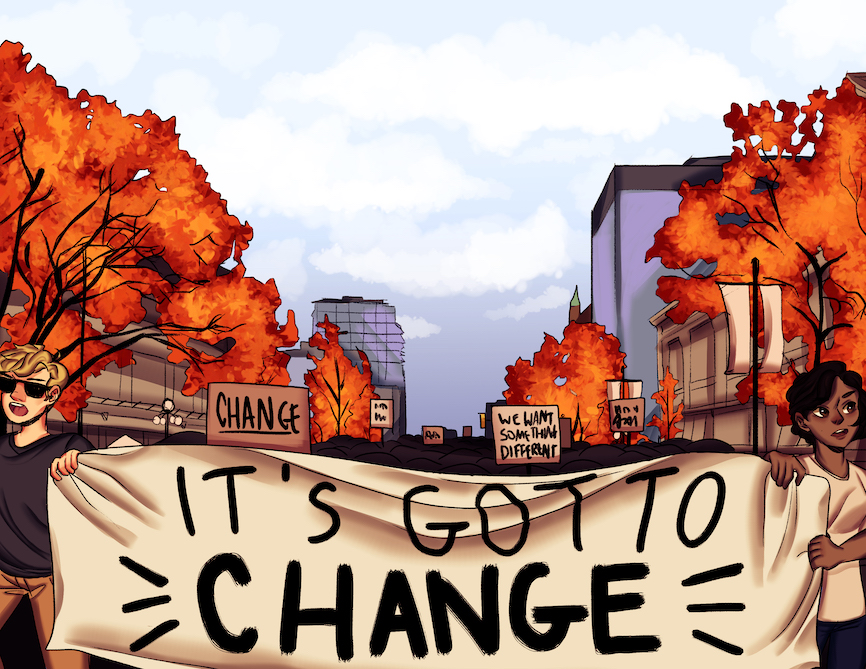
Judging by the enthusiastic and liberal participation of rallies, protests, and direct action that has happened on campus and in the city this year, UVic students have certainly been stickin’ it to The Man. What has transpired has been markedly different from what I foresaw in my op-ed “UVic students could learn a thing or two from Hong Kong,” first published in Vol. 72, Issue 5 of the Martlet. My initial notion of a lukewarm and seasonal UVic activism culture — compared to the dedication of university students in Hong Kong to their cause — has definitely changed.
Much has changed in the past eight months.
Of particular significance is the Indigenous-led Wet’suwet’en solidarity movement that kicked off when Kolin Sutherland-Wilson began sitting on the steps of the Legislature in early January. Over the course of the semester, I supported and witnessed the highly motivated UVic students that challenged the colonial prejudices of the state with highly-publicized disruptions across the City of Victoria. The movement eventually culminated in arrests amidst a massive police operation in the early hours of March 5. At the time of writing, three UVic students have been charged by the police for their actions in the movement.
Numerous parallels can be found between the Indigenous struggle and the unfolding events in Hong Kong — including the same reactionary response of gating and barricading Legislature buildings and police stations in both cities after successful actions.
Politicians call for a return to “normalcy” — but do we want the status quo?
While the responses that I’ve seen from the B.C. government and the police have been more measured than its fellow former colonial government in Hong Kong, do not mistake its light touch for complacency. Sure, we don’t remove teenagers from their families for protesting, or blind journalists like Veby Mega Indah while she was reporting on what’s happening on the streets, but direct challenges to the state cannot simply be brushed away as the fancies of idealistic students with too much time on their hands. The state remembers.
What the future looks like depends on what we do now and how we value the people in our communities. COVID-19 is laying bare all the inadequacies and inefficiencies of states as they struggle to contain the virus. As students try to organize and prepare their next steps during the pandemic, the ones in power are doing the same too. Politicians call for a return to “normalcy” — but do we want the status quo?
To move the needle on what’s deemed acceptable requires a concerted, serious effort on all fronts. To leave this in the unilateral hands of those deemed valuable to this society is to give up our ability to right the colonial and intersectional injustices that we all benefit from. Student organization is a key tool of resistance and mobilization so that society can become a better place. Universities remain some of the few places where people can learn to question the political and economic systems that maintain oppression.
The process of unmaking these systems of oppression benefit from every act of resistance. Despite the glorification of martyrs and movement leaders, it is the common people that make the biggest waves.
If the events in Hong Kong are of any indication, walking the path to better the world is to journey through a mountain of inventive suffering. For those still willing to take up the mantle, I can only say this: be kind to each other, because no one else will.







